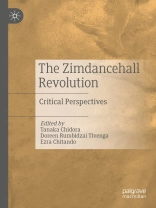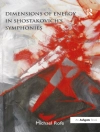Zimdancehall is a musical movement in Zimbabwe that has grown significantly since 2010. The Zimdancehall Revolution brings together critical essays on various aspects of Zimdancehall culture by scholars from diverse disciplines. Traditionally, music critics and senior academics have not taken Zimdancehall seriously, regarding it as vulgar, transient, bubble gum, lacking depth, and in short, a fad. There were also allegations that the lyrics influenced factionalism, incited violence and glorified drug use and unbridled promiscuity among the youth. This book affords this movement the protracted intellectual engagement that it deserves and argues that Zimdancehall is more than just a musical genre but an everyday culture, a way of life. The genre’s close association with the ghetto is telling and enables critics to look at it as a social movement, a revolution, or a raw, petulant and raging disturbance of peace by those who live their lives on the margins. Itis, thus, a violent irruption onto the public space by marginalised young people whose presence as artistes creating art from the margins, simultaneously as victims and agents, circulating in a geography that escapes the limits of nationalist ideological and physical territory, in a way subverts communitarian prescriptions and allows young people entry into the world, albeit in a painful, tumultuous and violent way. The essays range from the mapping of the genre’s historical development to theoretical interventions in understanding the genre and its relationship with various aspects of the Zimbabwean society like politics, gender, religion, language, dance, cultural values and other genres.
Inhoudsopgave
1: Introduction and Background.- 2: Zimdancehall’s Pre-History and Roots.- 3: Zimdancehall and Youth Culture.- 4: The Zimdancehall Underground and Youth Resistance from the Margins.- 5: Zimdancehall Music and the Voices of Zimbabwean Youth.- 6: Say Their Name: Zimdancehall Chanters & the Politics of Representation.- 7: Zimdancehall and The State.- 8: Zimdancehall and Everyday Urbanism.- 9. Zimdancehall’s Elite Capture.- 10: Soul Jah Love’s Necropolitianism.- 11: Soul Jah Love and Representations of Orphanhood and Motherhood in Zimdancehall.- 12: Soul Jah Love and the Ambivalent Representation of Women in Zimdancehall.- 13: Feminist Zimdancehall’s Subversion of Women’s Objectification.- 14: Religion and Spirituality in Zimdancehall.- 15: Zimdancehall and Afrofuturism.- 16: Zimdancehall’s Future.
Over de auteur
Tanaka Chidora is Humboldt Postdoctoral researcher at Goethe University (Germany) and is author of scholarly work on women, gender, and Zimbabwean popular music.
Doreen Rumbidzai Tivenga is Lecturer in the Department of English, Free State University (South Africa) and is author of
Music and Urban Youth Identities: A study of Ghetto Youth in Contemporary Culture and Politics in Zimbabwe.
Ezra Chitando is Professor in the Department of Philosophy, Religion, and Ethics at the University of Zimbabwe and is author of
Singing Culture: A Study of Gospel Music in Zimbabwe.












